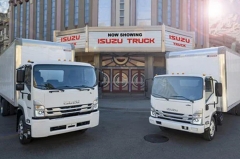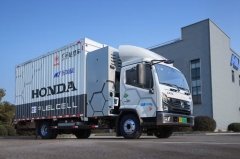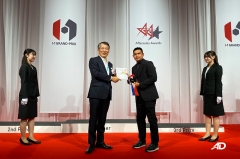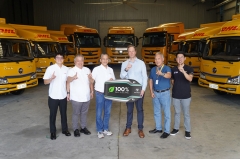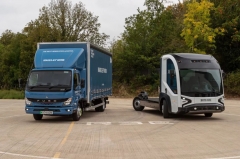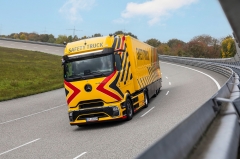
Japanese automakers Isuzu Motors and Honda Motor Co. have reached the next step in the development of the Isuzu Giga Fuel Cell, demonstration testing on public roads. The demonstration, set to continue until September 2024, serves as a crucial phase in the research and development process for their jointly created product, with plans for market launch in 2027. The place chosen for testing the Giga Fuel Cell is none other than the home country of Isuzu and Honda, Japan.
The primary objective of the tests is to assess the viability of hydrogen fuel utilization and evaluate the practicality of heavy-duty fuel cell trucks in tasks such as cargo handling and public road driving. Additionally, the testing includes an examination of vehicle operation management aspects, such as hydrogen refueling logistics, and the compatibility of heavy-duty trucks with market requirements.
However, if a zero-emissions truck is what both manufacturers are after, then why didn’t they develop a battery-electric truck like Volvo’s FH Electric? According to Honda, the decision to opt for hydrogen as the fuel source stems from its advantages in range, substantial load capacity, and rapid refueling—essential factors for long-haul delivery and logistics operations. Integrated into a Giga prototype vehicle, the fuel cell (FC) stack transforms hydrogen into electricity to propel the motor. In tandem, a lithium-ion battery provides supplementary power to the electric motor.

Notably, the hydrogen-powered Giga boasts an impressive 429 horsepower generated by its electric motor. The result is a carbon-emission-free truck without the long waiting times to charge up.
The Giga Fuel Cell project started following an agreement signed between the two companies in January 2020 for collaborative research on fuel cell-powered heavy-duty trucks. Aside from verifying if fuel cell tech is viable for heavy-duty trucks they are also actively working on establishing a foundation for fundamental technologies, including vehicle control technologies. Leveraging the technology, experience, and knowledge acquired through this joint research, the two companies aim to introduce the production model to the market in 2027.


